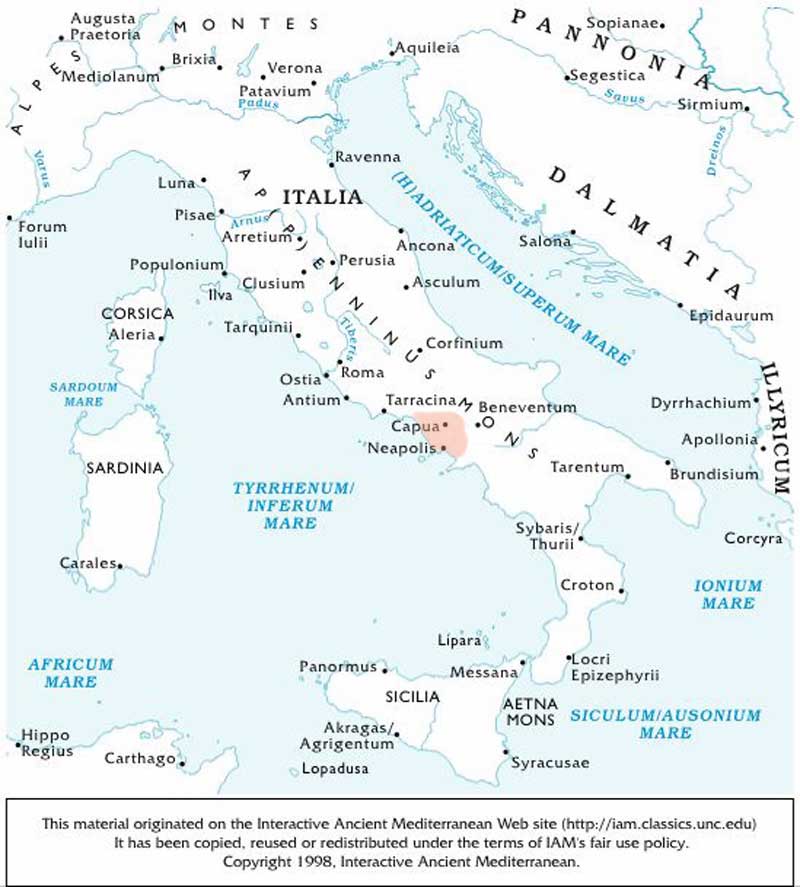A district of Italy, the name of which is probably derived from campus, "a plain." It was separated from Latium by the river Liris, and from Lucania at a later time by the river Silarus, though in the time of Augustus it did not extend farther south than the promontory of Minerva. In still earlier times, the "Ager Campanus" included only the country around Capua.Campania is a volcanic country, to which circumstance it mainly owed the extraordinary fertility for which it was celebrated in antiquity above all other lands. The fertility of the soil, allowing in parts three crops in a year, the beauty of the scenery, and the softness of the climate, the heat of which was tempered by the delicious breezes of the sea, procured for Campania the epithet Felix, a name which it justly deserved. It was the favourite retreat in summer of the Roman nobles, whose villas studded a considerable part of its coast, especially in the neighbourhood of Baiae.
The earliest inhabitants of the country were the Ausones and the Osci or Opici. These were subsequently conquered by the Etruscans, who became the masters of almost all the country. In the time of the Romans we find three distinct peoples, besides the Greek population of Cumae: (1) The Campani, properly so called, a mixed race, consisting of Etruscans and the original inhabitants of the country, dwelling along the coast from Sinuessa to Paestum. They were the ruling race at Capua. (2) The Sidicini, an Ausonian people, in the northwest of the country on the borders of Samnium. (3) The Picenteni, in the southeastern part of the country. (Encyclopedia Britannica)
